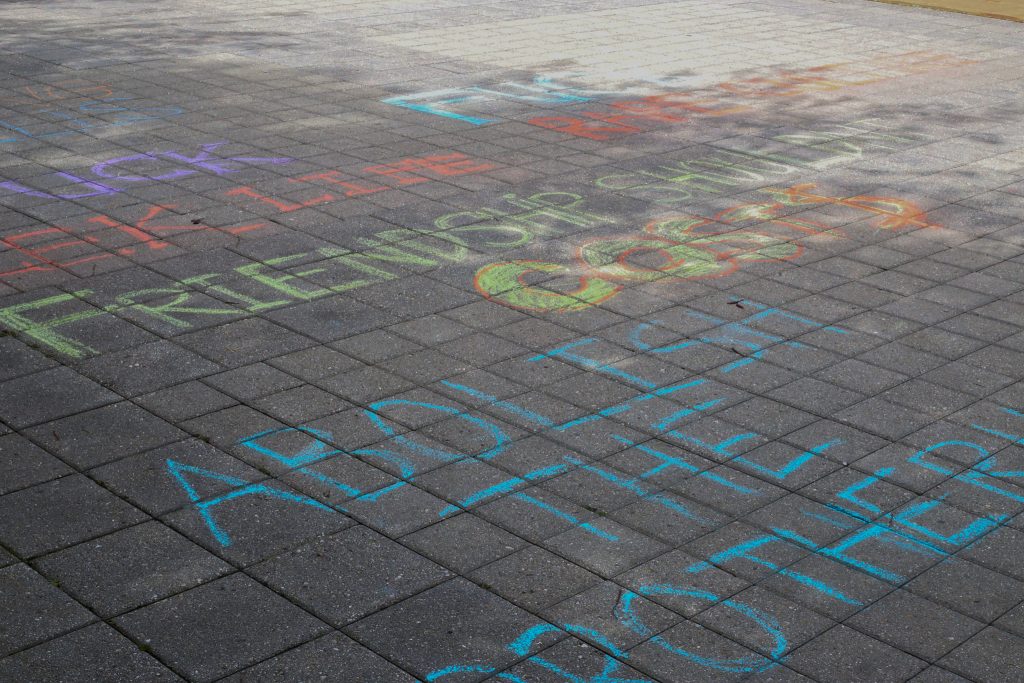Over the last week, the Women’s Student Union (WSU) organized against Greek life.
From Sept. 19 to Sept. 23, WSU held their second annual “Abolish Greek Life Week of Action.” The week featured a series of events designed to “highlight the ways in which Greek life is a harmful institution which perpetuates abuse, sexism, racism, classism and overall exclusion,” according to WSU’s Instagram. Programming throughout the week included a lecture regarding “systemic harms” in Greek life and a discussion for people who had been negatively affected by Greek life.
According to KT Fitzgerald, president of WSU and a senior double-majoring in psychology and women, gender and sexuality studies, the event was scheduled during early fall because it is a time when Greek life is most active.
“An event demanding the dissolution of Greek life is something that our executive board had in mind for a while, especially following the launch of @shareyourstorybing, but we were previously unable to fully execute this idea due to [COVID-19],” Fitzgerald wrote in an email. “With the new allowance of in-person participation last fall, as well as a huge influx of freshmen and newly in-person students, we knew that the first weeks of fall would be the perfect time to educate the campus community about harmful aspects of Greek life. While formal rush for freshmen isn’t until spring, rush still occurs in the fall regardless, along with a myriad of “welcoming” social events and open parties which present [themselves] as alluring and exciting new experiences for incoming students.”
Fitzgerald explained how, in planning the week’s programming, WSU looked to create events that generated conversation.
“I think the most crucial portion of planning this week isn’t necessarily about the events we host, but rather about what discussions and channels of discourse are being opened up outside of the context of WSU,” Fitzgerald wrote. “We want to inspire fellow students to initiate these conversations with their peers regardless of their background with Greek life — ultimately, getting people to question their involvement in these organizations and talk about their experiences, good or bad, is a necessary step toward reshaping campus culture and creating the conditions for a community that is no longer reliant on hierarchy or exclusive practices.”
The final event of the Week of Action, held on Friday, was Chalk the Spine. This event saw participants write various messages against Greek life on the Spine walkway. WSU also handed out various pamphlets on their concerns regarding Greek life. One pamphlet described the “Red Zone,” a six-week period at the beginning of the semester when freshmen are most vulnerable to sexual assault.
Sydney Werner, treasurer for WSU and a senior double-majoring in comparative literature and German, expressed hope that the messages would draw attention to WSU’s cause.
“I’m happy to have this space on the Spine to speak out on what’s going on in Greek life,” Werner said. “I hope that it will bring awareness to more students about the possibilities of a university without Greek life — the alternatives. So yeah, I’m just happy to be here.”
A similar sentiment was expressed by Isabel Gurwitch, historian for WSU and a senior majoring in human development.
“I hope that when people see this, they know that they are not alone in the way they feel about Greek life and that they can find community apart from Greek life,” Gurwitch said. “And that the way that they feel they have been marginalized is the way that a lot of people feel and that Greek life really is harmful.”
With the Week of Action now over, Fitzgerald explained their feelings on making students understand their beliefs regarding Greek life.
“It is absolutely necessary to critique and challenge systems which contribute to or perpetuate existing inequities and injustices, and Greek life is no exception,” Fitzgerald wrote. “We want our peers to understand that while involvement in Greek Life may seem innocuous or personally beneficial in some ways, it ultimately upholds larger oppressive cultural, political and economic structures, and there are much less harmful ways to socialize and form community. We can imagine and create healthy and just communities for ourselves without replicating oppressive behaviors, and we have a unique opportunity to do so as young people and as college students.”



